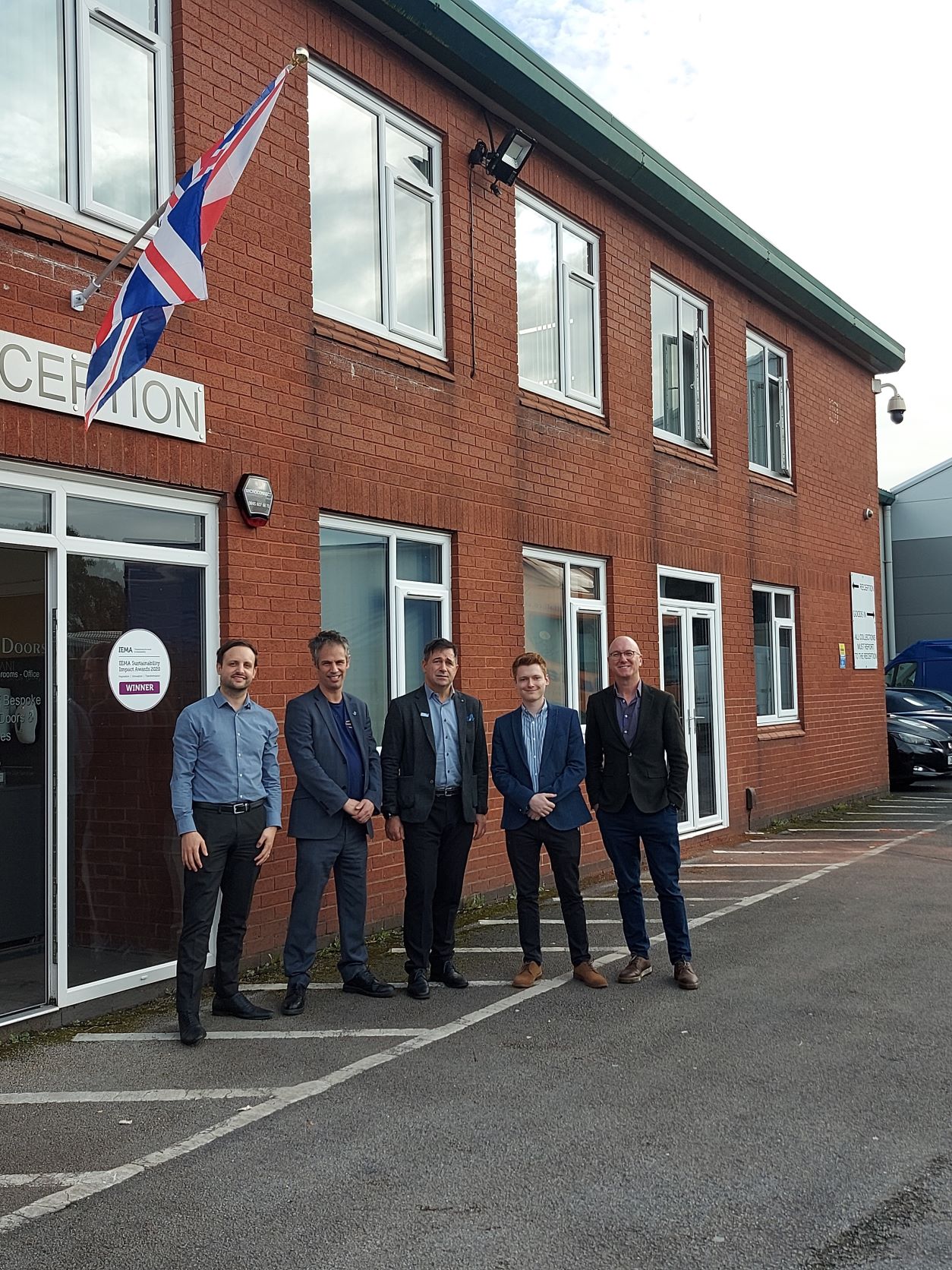A Rochdale-based manufacturer whose efforts to cut carbon emissions have been supported by the Made Smarter programme will be showcased at the COP26 global climate summit.
Crystal Doors, which makes bespoke, vinyl wrapped doors and accessories for kitchens, bedrooms and bathrooms, will feature at the summit as one of nine outstanding sustainable organisations promoted by Nigel Topping, the UK Government’s High Level Champion for Climate Action.
The company has spent over £1.5m over the past five years on reducing carbon emissions and is set to achieve net zero by the time COP26 gets underway on October 31.
A series of sustainability investments – including energy saving lighting and equipment, solar panels and a world-first AI-powered dust extractor – saw the business awarded ‘Energy and Carbon Transition of the Year’ in 2020 by the Institute of Environmental Management and Assessment (IEMA). This was followed by a Queen’s Award for Enterprise for Sustainable Development in 2021.
Made Smarter’s digital transformation workshop process helped Crystal Doors to roadmap their journey to digital transformation of the business and identify opportunities to use technology to become more efficient. The fully-funded, bespoke process involved working with an impartial adviser to analyse the business’s products, services, processes and people, and develop a tailored digital transformation plan.
Through Made Smarter’s digital technology internship programme, which links students and postgraduates with SME manufacturers, Crystal Doors hired a three-month funded intern to implement a network of sensors that will provide insights into how machines are performing and identify potential efficiency improvements.
Richard Hagan, Managing Director of Crystal Doors, said:
“The climate summit in Glasgow will focus on technology, leadership and commitment. Our contribution is to show that every organisation of any size can achieve significant reductions in costs and the emission reductions required to slow climate change.
“The purpose of every business is to improve wellbeing and success for everyone. What we have achieved here in Rochdale is a new model of business values, similar to the Co-operative movement in the 1850s. We have a work culture that is constantly adapting, and each team member is regularly challenged with new technology to manage and skills to learn. All 31 employees are valued equally and together they celebrate our successes as a single community, with the average employee living within three miles of the factory.”
Through the Greater Manchester Economic Vision, the GM LEP is backing innovation in the advanced materials and manufacturing sectors to help companies transition to net zero. Former LEP member Juergen Maier chairs Made Smarter and current LEP member Justin Kelly chairs the Graphene, Advanced Materials & Manufacturing Alliance (GAMMA).
The GM LEP has also led the launch the Bee Net Zero programme, an initiative seeking to make Greater Manchester the easiest place in the UK to become a net zero business.
Gateway North Manufacturing Innovation Park
Manufacturing in Rochdale, Greater Manchester and the wider North is set to receive a further boost through the development of the Gateway North Manufacturing Innovation Park.
The site between Rochdale, Middleton and Bury, which lies about 5 miles from Crystal Doors’ headquarters, will host the North West’s newest and largest manufacturing innovation park.
Plans for the £650m development include 1.2 million sq m of commercial floorspace, with a cluster of new research and training facilities focusing on advanced materials, manufacturing, and modern construction methods, linked to the strengths of the universities in the city-region.
The nearby Kingsway site is planned to host a new Advanced Machinery and Productivity Institute (AMPI), an industry-led initiative involving the National Physical Laboratory to stimulate growth in manufacturing machinery and associated technology sectors.
Graphene, Advanced Materials & Manufacturing Alliance (GAMMA)
GAMMA is a partnership between the GM LEP, local public agencies, industry, universities and government responsible for coordinating the implementation of the local industrial strategy for this sector.
GAMMA was established to get a clear view of the needs of advanced materials and manufacturing businesses in Greater Manchester, be a focal point for government engagement, and to develop plans to ensure that effective support is delivered for the sector so that our private, public and academic assets are effectively utilised to deliver economic benefit.
The GAMMA vision is for advanced materials and industrial digital technologies that support the creation of a net zero advanced manufacturing supercluster in the North of England driving a more productive, sustainable, highly skilled, and innovative industry.
The programme offers additional targeted support through grant funding for the adoption of digital technologies, digital internships to help grow knowledge and capability in-house, and strengthening leadership through a structured programme bringing together business leaders.

